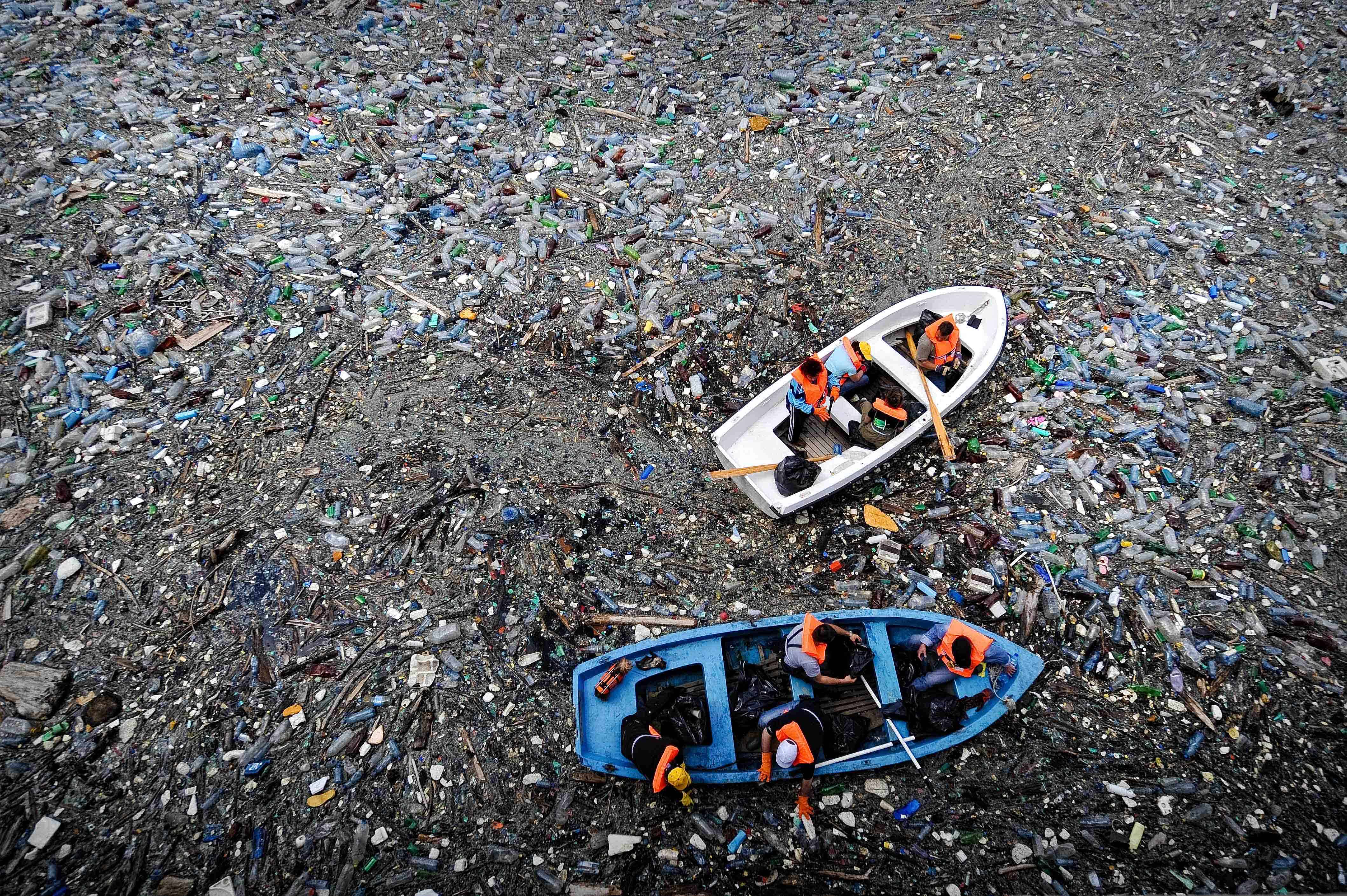Imagine going to the beach for a swim only to find trash in the sand and plastic bottles bobbing on the waves.
“As surfers, we’re at the beach and in the water, where everything tends to end up,” said Stuart Coleman, a lanky 51-year-old surfer and manager at Surfrider Foundation, a grass-roots environmental organization. “I used to not think that the environment was in trouble but it became increasingly obvious that the planet was under threat.”
Coleman would go on to help successfully lobby for Hawaii’s 2015 ban on plastic bags and now he’s in Costa Rica this week for World Environmental Day to raise awareness about plastic pollution. Coleman, who was invited by the UN Development Program to participate in several outreach events this week, told The Tico Times that plastic-bag waste is one of the most serious threats to the environment but also one of the easiest to solve.
“Plastic bags are a symbol of the worst waste management issues of our time,” Coleman said.
Plastic bags, which are made from petroleum, are ubiquitous, often used once, and then tossed to sit in a landfill for centuries. The amount of plastic pollution is daunting. According to figures from Surfrider, each year more than 20 million tons of plastic litter enters the ocean. Coleman said the average U.S. family takes home 360 bags annually.
Coleman said plastic bag pollution is an eyesore, harms wildlife and even poses a health risk to humans as microscopic bits of plastics make their way into the food chain. Charging customers for their plastic bags at the supermarket, for example, is one of the most effective ways to curb disposable plastic bag use, Coleman said. It gives people an incentive to bring reusable bags from home or simply pass on a bag for a small purchase.
Costa Rica’s legislature is reviewing a bill that would require businesses to charge customers for plastic bags and offer reusable bags for purchase. The bill was approved unanimously by the Environmental Commission of the Legislative Assembly in November 2015. At this writing, however, the bill is not on the legislature’s agenda for debate.
Short of legislation, there are daily choices people can make to reduce plastic pollution:
- Refuse single-use plastics whenever possible (bags, plastic utensils, plates, straws, etc.)
- Bring a reusable shopping bag
- Carry a reusable water bottle
- If you have to use plastics, recycle them
“This is something simple to fix,” Coleman said. “It’s not like trying to figure out how to power a country.”
It turns out Costa Rica has that last part figured out. The country broke records in 2015 when it went 94 consecutive days exclusively on renewable energy.
But despite this achievement and other environmental feats, like forest conservation, Costa Rica struggles with waste management. Plastic bags and other garbage block sewers, causing flooding in San José. Landfills have been closed for violating environmental laws but locals don’t want new ones in their backyard. UNDP Costa Rica spokesman Danilo Mora said the office wants to continue pushing Costa Rica’s environmental record by focusing on new issues, like eliminating plastic bags.
Coleman said moving away from a “throw-away culture” depends on educating young people. That’s why he’ll be visiting with students in Jacó this Thursday before returning to San José Friday to participate in the Feria del Ambiente at the Antigua Aduana. The fair is free and open to the public from 9 a.m. to 6 p.m. between June 3 and 5.
Some are skeptical of getting rid of plastic bags because of convenience and force of habit, Coleman said. Others claim that getting rid of the cheap bags would threaten businesses’ bottom line. Coleman said there hasn’t been any evidence that businesses have gone broke because of plastic-bag bans.
“If you were a business, where would you rather see your logo,” Coleman asked, “on a dirty plastic bag on the ground or on the side of a reusable bag someone carries?”







